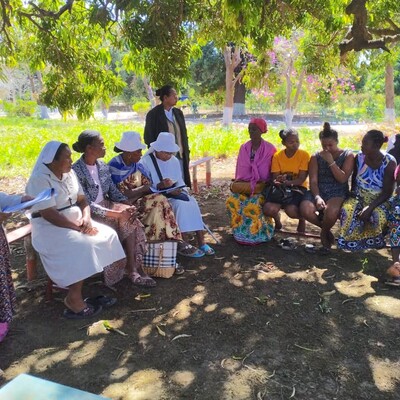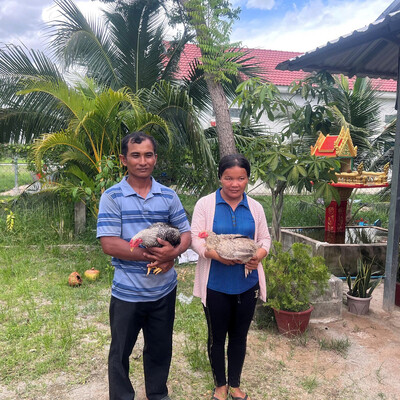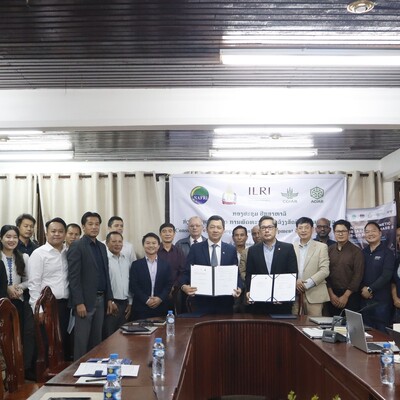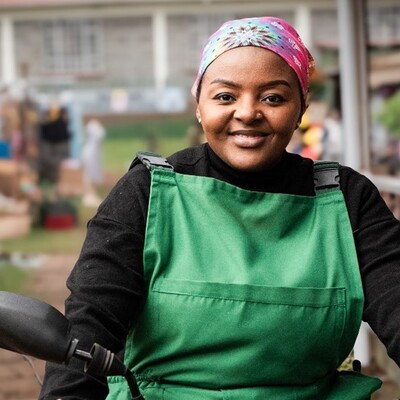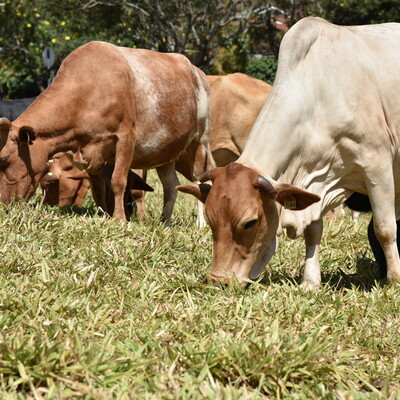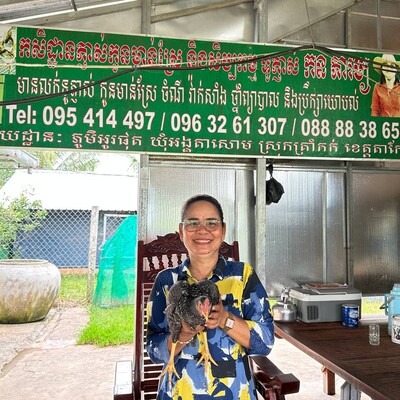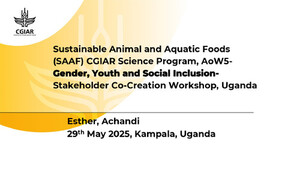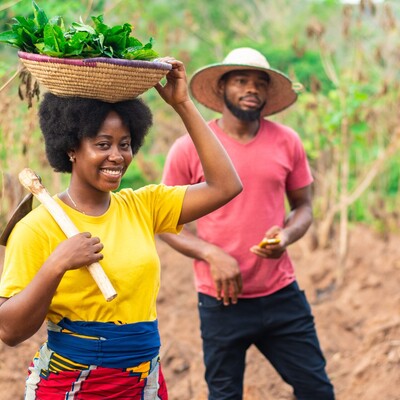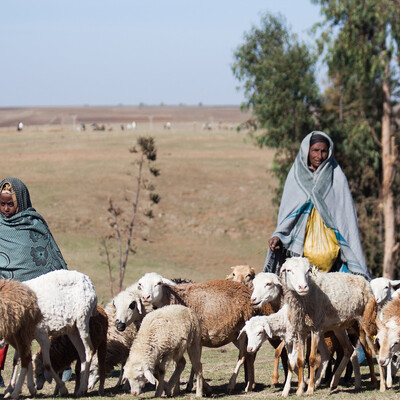
Celebrating International Women's Day 2024
“As we celebrate International Women’s Day, I think this is always a time to take stock. Are we making progress?”
So said Susan Kaaria, the director of African Women in Agricultural Research and Development (AWARD), on 8 March 2024. This year’s theme was ‘Invest in Women: Celebrate Progress’, and a celebration event 'Illuminating Impactful Investments: A Celebration of International Women’s Day' was taking place at CIFOR-ICRAF in Nairobi, Kenya.
Among the speakers from CGIAR Gender Platform and various research institutions were members of ILRI. They included gender economist Immaculate Omondi, and director general Appolinaire Djikeng.
Djikeng was engaged onstage in dialogue by Kaaria and Éliane Ubalijoro, the director general of the World Agroforestry Centre (ICRAF) and CEO of ICRAF-CIFOR. Kaaria noted that The Global Food 50/50 Report 2023/2024, published the previous day, finds substantial progress has been achieved in gender equality. A survey of 51 global food and agriculture organizations finds many have laid out transparent policies on diversity, inclusion and equality.
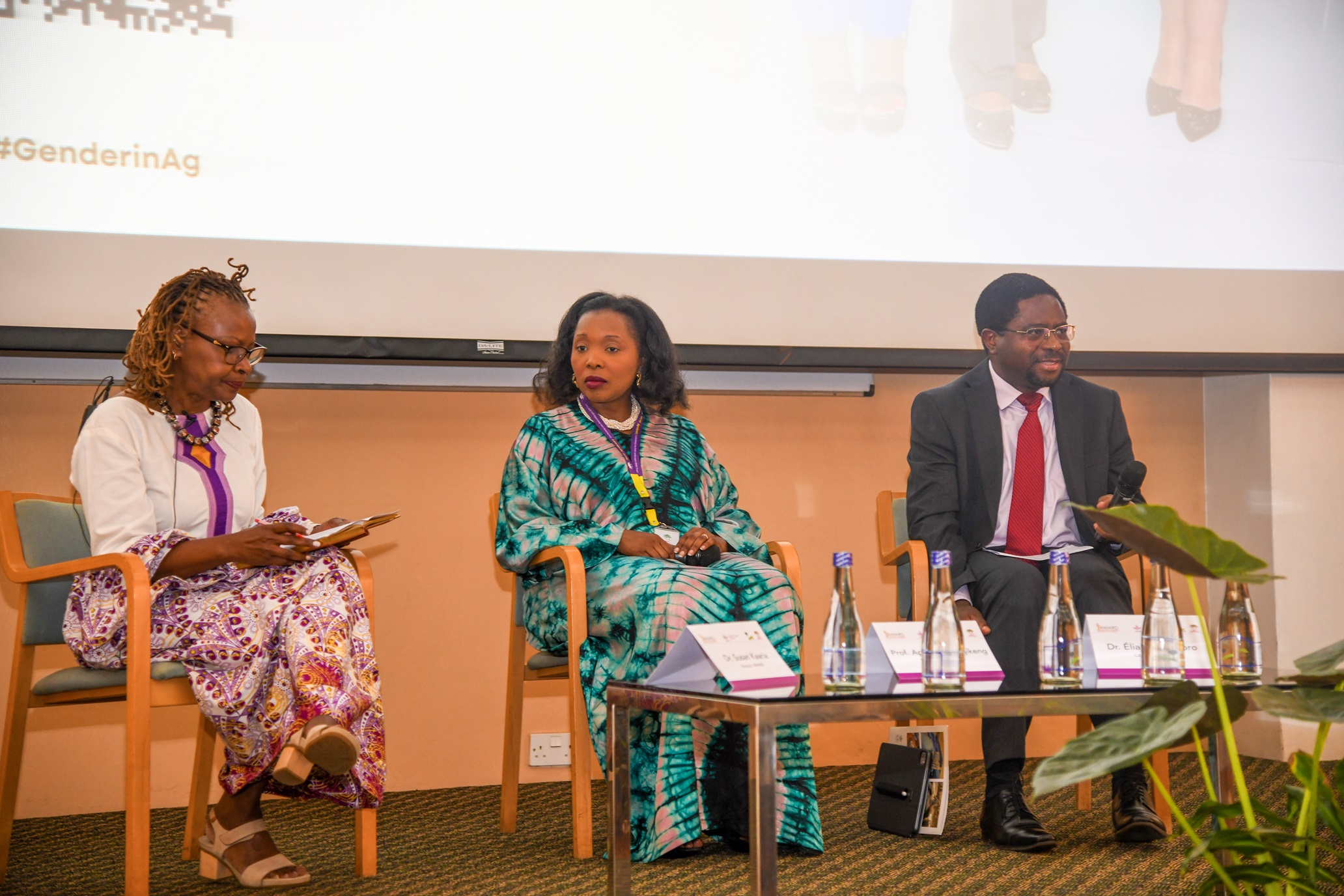
However, the actual implementation of these policies has been slow. Since the publication of the first report in 2020, leader remains disproportionately male, with no change in the number of female CEOs, and nearly three quarters of board chairs and CEOs remaining men. The report also highlighted areas for organizations to improve employee care, in particular the extra care responsibilities women shoulder for children and elderly family members.
This slow though hopeful change was reflected Ubalijoro’s article for The Guardian, where she noted that this year will be the first time in more than 50 years that two African women—herself, and Yvonne Pinto, incoming director general of the International Rice Research Institute (IRRI)—will lead CGIAR institutions.
Waaria questioned both director generals about the status of gender equality in their organizations, and what is being done to support progress.
Djikeng praised Ubalijoro as a role model for the women in the room. He explained there is an academic and professional gender gap between boys and girls which develops as girls reach life ‘checkpoints’, such as marriage and child rearing.
There needs to be a holistic approach to address this gap, beginning early in life, advised Djikeng. But director generals and professors and leaders of organizations must also apply institutional mechanisms to close it.
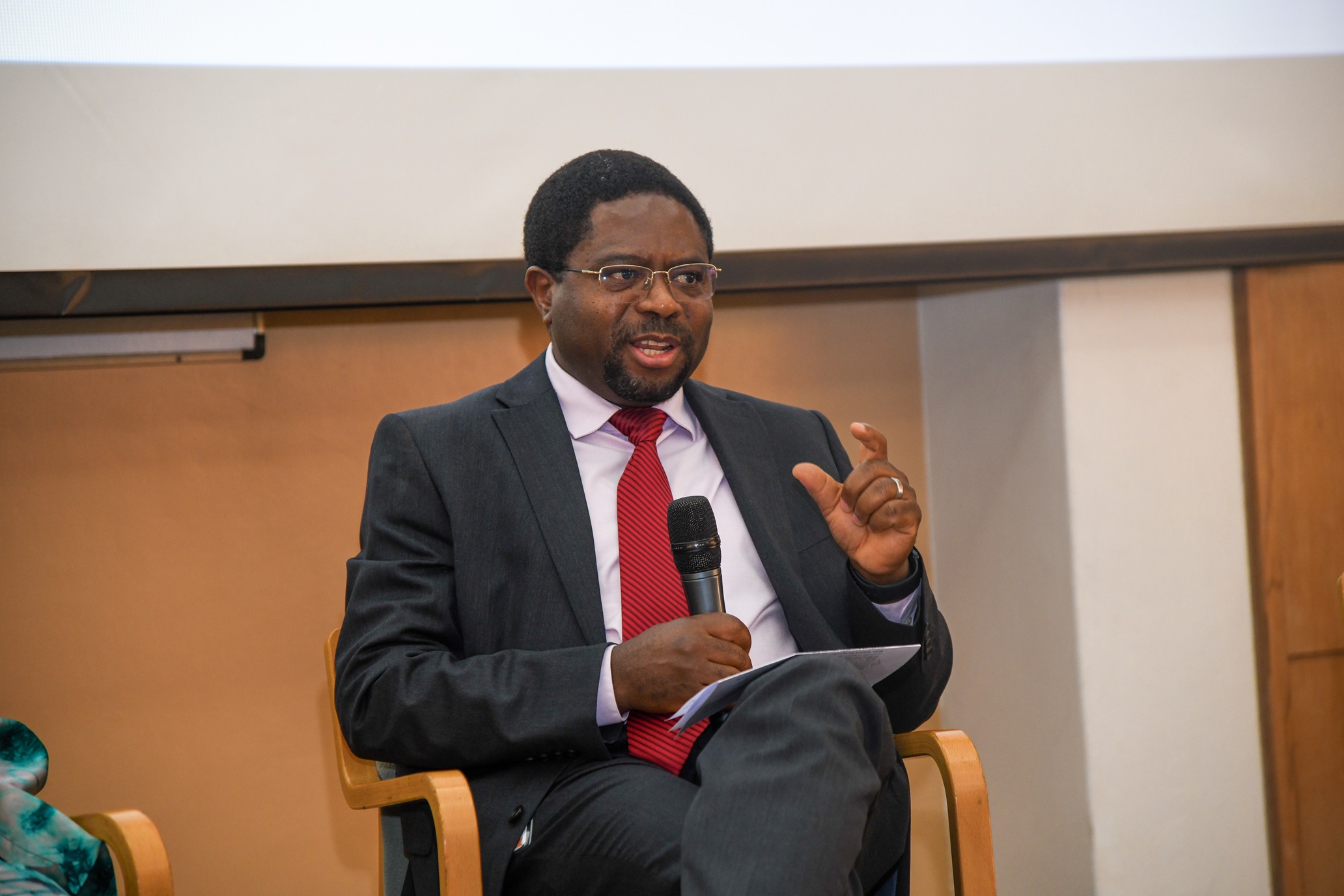
When he first entered CGIAR as a student in 1995, there was only one African woman scientist in ILRI, Rachel Masake. Today, there are many, and at entry level equal numbers of women and men are hired. But while we’ve made good progress, said Djikeng, with three women now in the leadership team at ILRI, there is still obvious gender disparity a few levels down. He went on to say institutions needed not only to create but actually deliver on gender plan actions, and actually have women in committees who can provide their insight, from broader issues such as how people are hired, to smaller yet still significant ones such when work meetings typically begin and if this fits with women’s childcare demands.
“If you don’t have diversity, there’s no way you can strengthen,” Djikeng remarked, drawing a parallel between his scientific work as a geneticist, and his leadership of ILRI. “It is not just a box ticking thing that we are trying to do. The strength and the performance of organizations depend on the diversity that we have.“
Asked further on what he is doing to improve women’s experiences at ILRI, Djikeng spoke about the importance of looking firmly at gender data and using it to drive gender plan actions, whether when planning a new recruitment for a position, or ensuring an appropriate gender balance in meeting participants. Next, he talked about generating an environment of respect and emotional health in the workplace. Finally, he outlined the importance of impact assessment of ILRI’s research, pointing out that livestock farming is very gender-inclusive.
Later in the day, ILRI gender economist Immaculate Omondi took to the stage to talk about her experience as a female African scientist at ILRI.
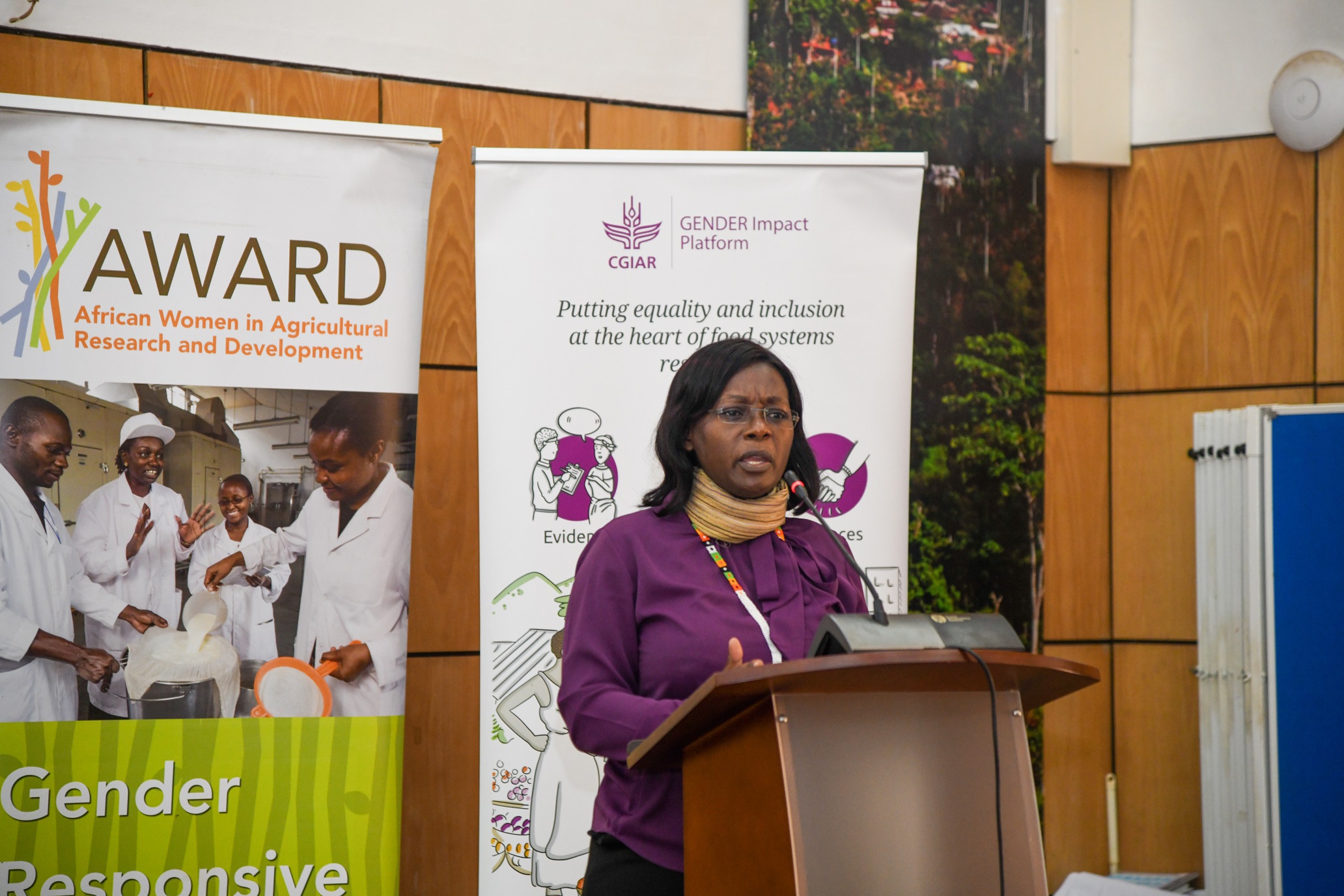
She recalled the words of Joyce Banda, a former president of Malawi.
“The seeds of success in every part of the world are best placed on women and children.”
It took belief in herself, and the belief of other people, to get her where she is today. The opportunity she was given, on joining ILRI, to make a meaningful difference in lives and livelihoods, was like water and manure, said Omondi. They sprouted the seed of success in me and led her to more opportunities for change and success. She said she believed Banda’s words were not placing a burden on women and children, but called on the world to appreciate and invest in their potential. Would all of those present join and invest in that vision?
Watch the full event here.







